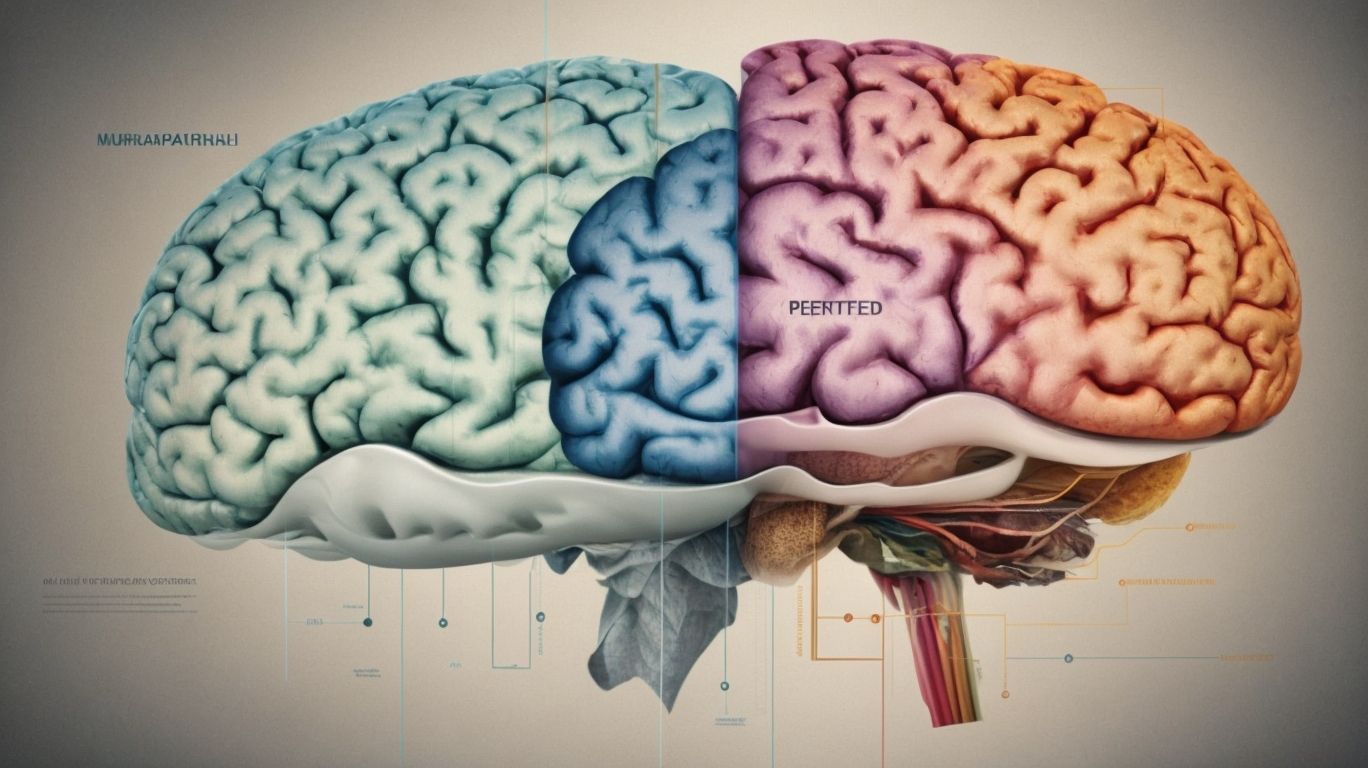Have you ever wondered about the concept of maturation in psychology and how it differs from learning? In this article, we will explore the stages of maturation from prenatal to adulthood, and how it impacts physical, cognitive, emotional, and social development. We will also discuss the factors that influence maturation, such as genetics, environment, and nutrition, as well as ways to promote healthy maturation through nurturing environments, physical activity, and proper nutrition. Join us on this journey to understanding the fascinating process of maturation and its role in human development.
Contents
- 1 What Is Maturation in Psychology?
- 2 What Are the Stages of Maturation?
- 3 How Does Maturation Impact Development?
- 4 What Factors Affect Maturation?
- 5 How Can We Promote Healthy Maturation?
- 6 Frequently Asked Questions
- 6.1 What is maturation in psychology and how does it impact development?
- 6.2 How does maturation differ from learning?
- 6.3 What factors can affect maturation in individuals?
- 6.4 At what age does maturation typically occur?
- 6.5 How does maturation impact behavior and personality?
- 6.6 Can maturation be accelerated or delayed?
What Is Maturation in Psychology?
Maturation in psychology refers to the process of sequential biological and psychological changes that an organism undergoes as it develops from infancy to adulthood, influencing various aspects of behavior, cognition, and socialization.
This intricate process encompasses not only physical growth but also the maturing of cognitive abilities, emotional regulation, and social skills.
Biological
- factors play a crucial role in maturation, such as genetic predispositions and hormonal changes influencing brain development.
Concurrently,
Psychological
- factors, including experiences, learning, and environmental influences, shape an individual’s development.
These factors collectively contribute to shaping personality, temperament, and the capacity for relationships. As maturation progresses, individuals acquire new skills, refine existing ones, and adapt to the demands of various life stages.
How Is Maturation Different from Learning?
While maturation involves the intrinsic, genetically predetermined growth and development of an individual over time, learning encompasses the acquisition of knowledge, skills, and behaviors through experiences, education, and training.
Maturation is a continuous process that begins at conception and progresses throughout an individual’s life, guided by their genetic blueprint. It influences physical, emotional, and cognitive changes as the individual matures from infancy to adulthood.
In contrast, learning is a dynamic process that occurs in response to external stimuli and interactions, shaping an individual’s understanding of the world around them. Genetics plays a significant role in determining the pace and pattern of maturation, whereas learning is influenced by environmental factors and personal experiences.
What Are the Stages of Maturation?
Maturation progresses through distinct stages from prenatal development to adulthood, encompassing critical periods of growth and change in physical, cognitive, and emotional domains.
During the prenatal stage, incredible transformations occur as the fertilized egg rapidly divides and develops into a complex organism, laying the foundation for future growth.
Infancy marks the early stages of physical and cognitive development, characterized by rapid growth, sensory exploration, and the formation of important attachments.
Childhood brings significant advances in language acquisition, social skills, and the development of logical thinking.
Adolescence is a time of intense physical changes, cognitive maturation, and emotional turmoil as individuals navigate identity formation and peer relationships.
Adulthood encompasses the peak of physical capabilities, the refinement of cognitive skills, and the establishment of stable emotional patterns, representing the culmination of the maturation process.
Prenatal Stage
The prenatal stage of maturation is characterized by rapid physical and neuroanatomical development within the womb, setting the foundation for later growth and functionality.
During this crucial period, the genetic blueprint passed down from parents plays a significant role in determining the inherent traits and susceptibilities of the developing embryo. The environmental factors surrounding the mother, such as nutrition, exposure to toxins, and stress levels, are equally instrumental in shaping the overall health and cognitive potential of the fetus.
As cell division intensifies, specialized cells begin forming the neural tube, which eventually develops into the brain and spinal cord, marking the commencement of neurodevelopment. This intricate process relies on precise genetic signaling and environmental cues to ensure the proper formation of neural connections and brain structures that will govern various functions later in life.
Infancy Stage
Infancy marks a period of rapid growth and adaptation, where infants undergo significant physical, cognitive, and emotional maturation as they transition from complete dependence to increasing autonomy.
During this early stage of development, infants experience numerous milestones in their physical growth, such as gaining weight, increasing muscle strength, and developing motor skills, enabling them to grasp objects, roll over, and eventually walk.
Their cognitive abilities evolve as they start to recognize faces, imitate sounds, and show curiosity in their surroundings. This cognitive development is closely intertwined with their emotional maturation, as infants begin to display attachment to caregivers, express basic emotions like joy and distress, and learn to self-soothe.
These early interactions and experiences play a crucial role in shaping the foundation for their future social and emotional well-being.
Childhood Stage
Childhood is a phase of exploration and learning, where children experience significant cognitive, emotional, and social development, shaping their understanding of the world and interactions with others.
During this crucial stage of maturation, children begin to develop fundamental cognitive skills such as problem-solving, memory retention, and language acquisition. Their emotional growth is marked by the ability to express a wide range of feelings and develop empathy towards others. Socially, children start forming friendships, learning to share and cooperate, and understanding societal norms and values.
Adolescence Stage
Adolescence represents a period of profound physical, cognitive, and emotional changes, as individuals navigate the complexities of identity formation, peer relationships, and future aspirations.
During this transitional phase, adolescents experience rapid growth spurts, hormonal fluctuations, and the development of secondary sexual characteristics, which influence their self-image and interactions with others.
Their cognitive abilities also mature, enabling more sophisticated reasoning, problem-solving skills, and the capacity to think abstractly. This intellectual growth allows them to explore complex ideas, question existing beliefs, and envision their place in the world.
Emotionally, adolescents undergo intense mood swings, heightened sensitivity to social judgments, and a quest for autonomy while seeking acceptance and approval from peers and authority figures. Navigating these multifaceted changes shapes their adolescent identities and prepares them for the challenges and opportunities of adulthood.”
Adulthood Stage
Adulthood signifies the culmination of maturation processes, where individuals exhibit a blend of cognitive, emotional, and social capabilities shaped by their experiences, responsibilities, and personal growth.
During this stage, individuals often strive for autonomy and establish their unique identities while navigating the complexities of relationships and societal expectations. Self-discovery becomes paramount as they reflect on past experiences and envision their future paths. The cognitive abilities honed through education and work experiences are now utilized to make informed decisions and solve intricate problems.
Emotionally, adults learn to regulate their feelings, empathize with others, and cope with the highs and lows of life. Socially, they build networks, nurture friendships, and contribute to their communities.
How Does Maturation Impact Development?
Maturation plays a pivotal role in shaping development across physical, cognitive, and emotional domains, influencing an individual’s capacity for learning, adaptation, and socialization.
As individuals mature, their physical growth follows a predetermined biological trajectory governed by genetic factors. This process involves various stages of development, from infancy through adolescence and into adulthood, each characterized by specific milestones such as motor skill acquisition, puberty, and aging. Alongside these physical changes, cognitive abilities also undergo maturation, gradually advancing through stages of reasoning, problem-solving, and abstract thinking, all contributing to intellectual growth. Psychological maturation aids in the formation of emotional resilience, helping individuals navigate challenges with greater maturity and self-regulation. Social interactions are heavily influenced by maturation, as individuals develop interpersonal skills, empathy, and a sense of identity through their interactions with others.
Physical Development
Physical development driven by maturation encompasses the musculoskeletal, cardiovascular, and neurodevelopmental changes that shape an individual’s strength, coordination, and overall health.
During adolescence, the musculoskeletal system undergoes rapid growth spurts, with bones lengthening and increasing in density. The cardiovascular system matures, enhancing the body’s ability to transport oxygen and nutrients efficiently. Simultaneously, the neuroanatomical systems refine, supporting cognitive function and motor skills. These sequential changes not only contribute to physical prowess but also impact overall well-being and longevity. Understanding the intricate interplay between these systems provides valuable insights into how individuals develop and adapt throughout life.
Cognitive Development
Cognitive development influenced by maturation encompasses the acquisition, retention, and recall of information, reflecting an individual’s intelligence, problem-solving skills, and learning capacity.
As individuals mature, their cognitive processes undergo significant transformations. Intelligence, which refers to the ability to comprehend complex ideas, adapt effectively to the environment, and learn from experiences, is greatly influenced by genetic factors.
Genetic predispositions play a crucial role in shaping an individual’s intellectual capacity, determining their aptitude for different cognitive tasks. Memory functions, such as encoding, storage, and retrieval of information, are also impacted by maturation, with environmental stimuli contributing to the formation of long-term memories.
Emotional and Social Development
Emotional and social development shaped by maturation involves the regulation of emotions, the formation of relationships, and the adaptation to social norms across different life stages.
Maturation plays a crucial role in the development of emotional intelligence, which encompasses understanding and managing one’s emotions as well as recognizing and empathizing with others’ feelings. As individuals mature, their ability to regulate emotions becomes more sophisticated, impacting how they react to various situations and interact with others.
Maturation influences interpersonal interactions by shaping communication skills, conflict resolution strategies, and the capacity for forming deep and meaningful connections. This gradual process of growth fosters the individual’s capacity to navigate social dynamics, collaborate effectively, and build supportive networks.
What Factors Affect Maturation?
Maturation is influenced by a complex interplay of genetic predispositions, environmental stimuli, and nutritional factors that collectively shape an individual’s developmental trajectory from infancy to adulthood.
Genetic influences play a crucial role in determining the pace and extent of maturation. Each individual inherits a unique set of genes that can dictate various aspects of their biological development, including physical growth, cognitive abilities, and susceptibility to certain health conditions.
Environmental interactions further contribute to the maturation process by exposing individuals to external factors such as social interactions, physical surroundings, and cultural influences. These environmental cues can either accelerate or decelerate the maturation journey, impacting an individual’s intellectual, emotional, and physical growth.
Nutritional considerations also play a significant role in modulating maturation outcomes. A balanced diet rich in essential nutrients is essential for supporting optimal growth and development, ensuring that the body receives the necessary building blocks for healthy maturation.
Genetics
Genetic factors play a significant role in determining the pace and extent of maturation, influencing traits such as physical growth, cognitive abilities, and susceptibility to certain health conditions.
Heritability is a key concept in understanding how much of these variations in maturation can be attributed to genetic influences passed down from parents.
Studies have shown that genetic variability can lead to a wide range of outcomes in terms of development, from differences in height and weight to variations in problem-solving skills and emotional responses. The inheritance of specific traits, whether it be eye color, intelligence, or predisposition to certain illnesses, is governed by the complex interplay of genetic determinants that shape an individual’s growth and overall maturation process.
Environment
Environmental factors, including social experiences, educational opportunities, and cultural influences, interact with genetic predispositions to shape an individual’s maturation journey and developmental outcomes.
This intricate interplay between nature and nurture begins early in life, as infants start to absorb and respond to the world around them. Social interactions with caregivers, peers, and family members play a crucial role in forming neural connections and laying the foundation for social skills. Similarly, access to quality education can significantly impact cognitive development, enhancing problem-solving abilities and critical thinking skills. Cultural contexts further mold individuals’ emotional intelligence, shaping their values, beliefs, and interpersonal relationships.
Nutrition
Nutritional intake and dietary habits represent critical factors in supporting optimal maturation, affecting physical growth, cognitive functioning, and overall health throughout the lifespan.
The quality of nutrients consumed plays a pivotal role in shaping the developmental trajectory of individuals, impacting not only their physical stature but also their mental capabilities and immune system resilience.
- Macronutrients, such as proteins, carbohydrates, and fats, provide the energy and building blocks necessary for growth and repair.
- On the other hand, micronutrients like vitamins and minerals act as catalysts in various physiological processes, ranging from hormone regulation to neural connectivity.
By maintaining a well-balanced diet rich in diverse nutrients, individuals can optimize their potential for healthy maturation and overall well-being.
How Can We Promote Healthy Maturation?
Promoting healthy maturation involves providing a nurturing environment, encouraging physical activity, and ensuring proper nutrition to support optimal growth and development across physical, cognitive, and emotional domains.
A nurturing environment plays a crucial role in shaping a child’s overall well-being. It involves creating a safe and supportive atmosphere where children feel secure and valued, which is essential for their emotional development.
Encouraging physical activity from a young age helps in enhancing motor skills, strength, and cardiovascular health, leading to better physical maturation.
Offering nutritional support through a balanced diet rich in essential nutrients is fundamental for cognitive development, memory retention, and regulating energy levels. These strategies collectively contribute to fostering robust physical, cognitive, and emotional growth.
Providing a Nurturing Environment
Creating a nurturing environment involves cultivating supportive relationships, establishing routines, and offering emotional stability to enhance the maturation process and overall well-being of individuals.
Supportive relationships play a pivotal role in nurturing environments as they provide a sense of security and belonging, fostering trust and emotional connection.
Regular routines help establish predictability and structure, promoting a sense of stability and aiding in cognitive development.
Emotional stability, characterized by consistent emotional support and a safe space for expression, is crucial for individuals to develop resilience and emotional intelligence.
Encouraging Physical Activity
Physical activity plays a vital role in supporting healthy maturation by enhancing motor skills, promoting cardiovascular health, and fostering overall physical well-being from childhood through adulthood.
In childhood, regular physical activity aids in the development of fundamental movement skills like running, jumping, and throwing, laying the foundation for more complex movements later in life. As individuals progress into adolescence, engaging in sports or structured activities not only improves cardiovascular fitness but also builds teamwork, leadership, and discipline. In adulthood, maintaining an active lifestyle helps reduce the risk of chronic diseases such as heart disease, diabetes, and obesity, ensuring a higher quality of life. The benefits of physical activity are multifaceted and extend far beyond just physical health.
Providing Proper Nutrition
Proper nutrition is essential for healthy maturation, as it fuels physical growth, supports cognitive functioning, and maintains overall health and well-being throughout the lifespan.
Consuming a balanced diet rich in essential nutrients such as proteins, carbohydrates, fats, vitamins, and minerals is crucial for individuals of all ages to thrive. Children and adolescents, in particular, require adequate levels of these nutrients to support their rapid growth and development. Research has shown that good dietary habits established early in life can have long-lasting effects on one’s health and well-being.
Frequently Asked Questions
What is maturation in psychology and how does it impact development?
Maturation refers to the natural and genetically predetermined process of physical and cognitive development that occurs as we age. It impacts development by influencing the pace and sequence of growth in individuals.
How does maturation differ from learning?
Maturation is an internal process that is largely determined by genetics and unfolds naturally, while learning is an external process that is influenced by our environment and experiences.
What factors can affect maturation in individuals?
Genetics, nutrition, and environmental factors such as stress, physical activity, and exposure to toxins can all impact the maturation process in individuals.
At what age does maturation typically occur?
Maturation begins in infancy and continues throughout childhood and adolescence, with the most rapid period of growth occurring during the first few years of life.
How does maturation impact behavior and personality?
Maturation can influence behavior and personality by shaping the development of physical, cognitive, and emotional abilities. For example, as children’s brains mature, they become better at regulating their emotions and making decisions.
Can maturation be accelerated or delayed?
While the general process of maturation cannot be altered, external factors can impact the pace of development, potentially leading to acceleration or delay. For example, early exposure to certain experiences or environments may accelerate maturation, while malnutrition or chronic stress may delay it.



